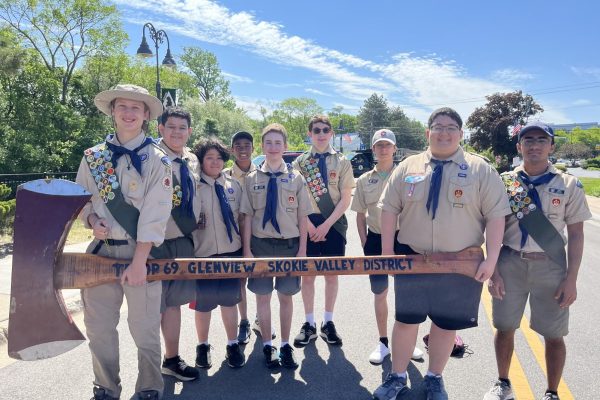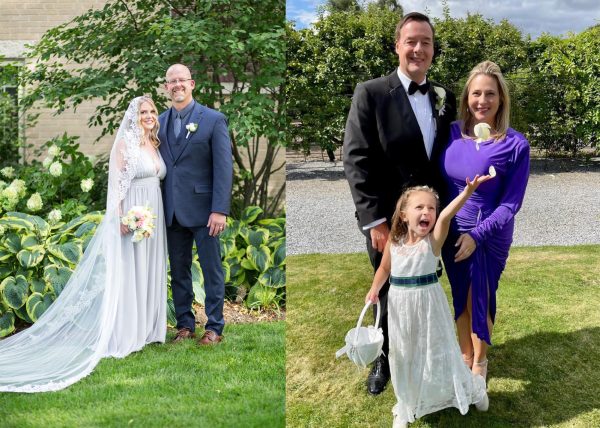Students aim to hop into workforce, urged to consider college as option
April 8, 2016
College is not for everyone. Though the majority of the GBS student body goes on after graduation to pursue a form of higher education, there is still a group who decides to follow different paths.
According to College Counselor John Klasen, the thought of more schooling after achieving a high school degree may be daunting to some. Klasen said that without any advice or help from someone at school or at home, the prospect of college can be overwhelming to some students.
“Some people who don’t have experience with college can [be scared],” Klasen said. “The prospect of finishing college if they haven’t had some guidance can impact their decision to pursue the working world.”
Klasen also expressed that students may enjoy the fact that they will have an immediate income to spend when they choose work over college.
“Sometimes students are a little shortsighted in terms of not understanding the impact of a college degree versus going straight into the work world,” Klasen said. “Students start to make some money, and they like having that extra money to spend but they don’t understand what going to college is going to do for them in the long run.”
According to Klasen, South sends most graduating seniors on to a college or a higher form of education, whether it be a junior college or four year institution.
“In a typical year, we are going to send between 96 and 97 percent on to college, so most of our students are looking at either a two year or a four year option,” Klasen said.
Klasen expressed that as a college counselor he encourages students seeking a job instead of a college degree to explore the option of college. He said students who fall into that category should maybe attempt to pursue the job along with their education.
“[For] any student, if they were thinking about going into the work world, my recommendation would be at least to look at some of the junior college options that are out there to start [an opportunity towards a degree],” Klasen said. “They can still certainly work during that time, you could go part time even, but my recommendation for those students is at least look at some higher education.”
Klasen further explained the disadvantages of students without a college degree in relation to the economy.
“In our economy, it is becoming increasingly difficult to find jobs if you do not have a degree, and I think that there are certainly some advantages to securing that degree,” Klasen said.
According to Klasen, South does provide opportunities for students yearning to go straight into the workforce after high school. GBS Connects is one chance for students to explore their interests in the working world.
“We do something called GBS Connects every other year where we bring in professionals from a variety of different occupations, some obviously needing advanced education and some not,” Klasen said. “I think that helps students identify what potential careers might be out there.”
Klasen expressed that in a student’s sophomore year at South they are introduced to a career interest profiler. He explains that this tool helps each student identify areas of interest and potential jobs in those fields.
“We start the students in their sophomore year with something called a career interest profiler where they go on and they identify areas of interest, and it gives them a Holland’s Code that will identify potential jobs,” Klasen explained. “Then students can go in and research those jobs, the education needed for those jobs, and the salaries that can be obtained with those jobs.”
According to Klasen, one area in which South could improve is in identifying students who seek a job right out of high school.
“Sometimes [students who seek a job right out of high school] are certainly are a little bit more difficult to identify,” Klasen said. “Some of those students who may end up going to a junior college then dropping out, and then pursuing a career the working world are sometimes students we are not made aware of [during their time at South].”
Klasen expressed that students who want to pursue a job right out of high school may want to prepare on their own outside of South. He said that exploration through internships would benefit those students.
“I think having more experience with what is out there in terms of internships [is beneficial],” Klasen said. “Plenty of places will allow students to work for free, and I think that can be easier when you’re a dependent of your parents and you have someone to support you. You can work for free and you can experience some of those opportunities and see what you like.”
Junior Grace Cepeda wants to pursue a career after graduating high school, but alongside her studies. Cepeda said that Columbia College in Chicago will offer her a program that will allow her to do both.
“My top choice school is Columbia College, and they are an arts school so they offer a lot of opportunity for performance there,” Cepeda explained. “I would go there for a program they have for music. I would be singing and have opportunities to do gigs and to sing in the area so that would allow me to pursue a career while doing college too.”
According to Cepeda, beginning her career right after high school is a strategic decision. She explained that age really impacts one’s job opportunities in the performing arts world. Also, she expressed how it is important for one to start accumulating a fan base as soon as possible.
“I think, especially with music, it helps to be younger because more fans are going to relate to a younger person and managers will want– especially with females– a younger performer,” Cepeda said.
Cepeda explained that while a degree in music would be practical from an educational standpoint, certain things in music can only be learned through experience.
“For my career in music, you do not really need a degree,” Cepeda said. “It definitely helps to know [music] theory and things like that, and I think Columbia [College] and other modern music degrees will help teach you how to book a gig and that kind of stuff, but a lot of that has to be done by experience.”
According to Cepeda, South’s choir department has prepared her for a performing arts job. While exposure to different genres of music has helped, she said being a part of Chambers Singers had prepared her the most.
“Chambers has helped me a lot,” Cepeda said. “We do gigs to understand how things in the music world work. I think we do a good job [at South] of teaching people how to act around other people who are not in a school, like for Chambers we know we have to be [at performances] on time. If you’re late for a gig, it reflects poorly both on the school and on you.”
Cepeda and Klasen both agree that a college education is necessary to advance in existing job fields, which according to Klasen, will lead students to more opportunities in the future.










